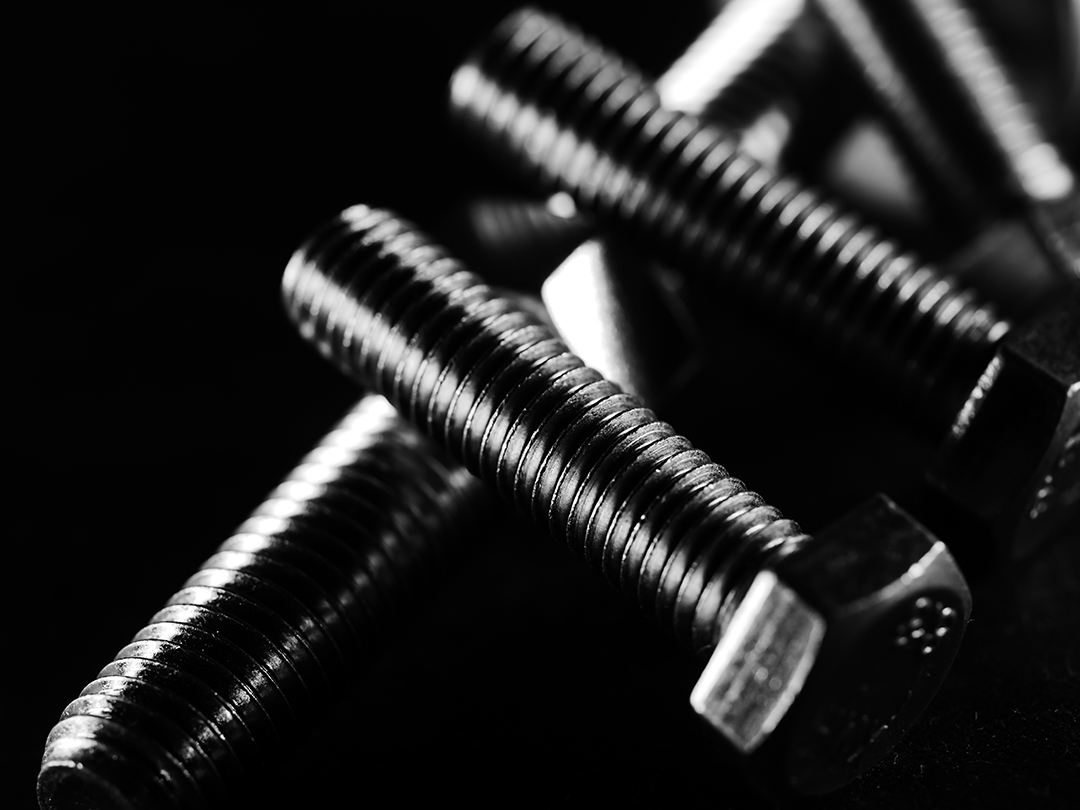Fasteners are integral components in industrial systems, providing the stability and safety required to maintain operational efficiency. Among the many bolt types available, B8 bolts and standard bolts are widely used for their unique features and advantages. Understanding their distinctions is essential for selecting the right fastener for your specific industrial application.
What Sets B8 Bolts Apart?
B8 bolts are specialized fasteners manufactured from austenitic stainless steel, typically Grade 304 or 304L. These materials ensure exceptional corrosion resistance, high tensile strength, and durability under extreme conditions. Unlike standard bolts, B8 bolts are heat-treated to enhance their mechanical properties, making them suitable for demanding environments.
One notable feature of B8 bolts is their compliance with ASTM A193 specifications, a standard for bolts used in high-pressure and high-temperature applications. This certification ensures consistent performance, making them a preferred choice in industries such as chemical processing, power generation, and marine operations.
Standard Bolts: A Versatile Option
Standard bolts come in various grades, each catering to specific mechanical and environmental requirements. These bolts are primarily made from carbon steel or alloy steel and are available in different strength levels:
- Grade 2: Suitable for general-purpose use, offering sufficient strength for low-stress applications.
- Grade 5: Common in automotive and machinery industries, these bolts offer moderate strength and durability.
- Grade 8: Designed for high-stress environments, these bolts provide exceptional strength but may require protective coatings for corrosion resistance.
Understanding Key Differences Between B8 Bolts and Standard Bolts
When comparing B8 bolts to standard bolts, especially in the context of ASTM specifications, several distinct differences arise. These differences primarily revolve around material composition, corrosion resistance, strength characteristics, and the range of applications they support.
Material Composition
B8 Bolts: Manufactured from AISI 304 stainless steel, B8 bolts utilize austenitic stainless steel, which has a superior combination of corrosion resistance and strength at elevated temperatures. These properties make the bolts well-suited to environments requiring durability and dependability under extreme conditions.
Standard Bolts: This category encompasses a variety of bolts made from materials such as carbon steel, alloy steel, or other grades of stainless steel. The material composition and specific properties of standard bolts vary significantly depending on their grade and intended use.
Corrosion Resistance
B8 Bolts: Offering moderate corrosion resistance, B8 bolts are suitable for a wide range of environments. However, their resistance is not as robust as that of B8M bolts, which include molybdenum in their composition to enhance performance in particularly aggressive or corrosive settings.
Standard Bolts: Corrosion resistance in standard bolts is highly variable and depends on the material used. For example, carbon steel bolts typically require protective coatings, such as zinc plating, to prevent rust, while stainless steel variants provide inherent corrosion resistance to differing degrees.
Strength Specifications
B8 Bolts: These bolts are categorized into two main classes under ASTM specifications:
- Class 1: Featuring a minimum tensile strength of 75 ksi and a yield strength of 30 ksi, Class 1 B8 bolts are suitable for a wide range of industrial applications.
- Class 2: Designed for higher strength requirements, Class 2 B8 bolts achieve a minimum tensile strength of 125 ksi and a yield strength of 100 ksi. This increased strength is achieved through strain hardening after carbide solution treatment.
Standard Bolts: The strength of standard bolts varies greatly depending on their grade and type:
- Grade 5: Offers moderate tensile strength, and is commonly used in automotive and machinery applications.
- Grade 8: Known for its high tensile strength, typically up to 150 ksi, making it ideal for heavy-duty applications. However, these bolts may not provide the same level of corrosion resistance as B8 bolts.
Applications
B8 Bolts: Designed to excel in high-temperature and high-pressure environments, B8 bolts are ideal in critical industrial settings like oil and gas, chemical processing, food and beverage, and power generation facilities. Their combination of strength and corrosion resistance ensures reliability under demanding conditions.
Standard Bolts: Standard bolts have a broader range of applications that largely depend on their grade and material. While they are frequently used in structural assemblies and general-purpose tasks, their performance in corrosive environments may be limited without additional protective coatings.
Features of B8 and Standard Bolts Compared
| Feature | B8 Bolts (AISI 304) | Standard Bolts |
| Material | AISI 304 Stainless Steel | Varies (e.g., carbon steel, alloy) |
| Corrosion Resistance | Moderate | Ranges widely |
| Strength (Class 1) | Tensile: 75 ksi | Depends on grade |
| Strength (Class 2) | Tensile: 125 ksi | Depends on grade |
| Applications | High-temperature and high-pressure settings | Structural and general use |
This comparison emphasizes the unique features and benefits of B8 bolts compared to standard bolts, enabling users to select the most suitable fastener for their specific industrial needs. Recognizing these differences allows industries to enhance their systems’ safety, efficiency, and reliability.
Industrial Applications of B8 Bolts and Standard Bolts
B8 bolts and standard bolts are essential fasteners in industrial settings, each offering unique advantages. While B8 bolts excel in high-stress and corrosive environments, standard bolts are favored for their versatility and cost-effectiveness in less demanding scenarios. The table below highlights their applications across various industries.
| Industry | B8 Bolts | Standard Bolts |
| Chemical Processing | Piping systems, reactors | Limited use, requires coatings |
| Marine Engineering | Saltwater equipment | Requires corrosion protection |
| Power Generation | Turbines, boilers, heat exchangers | Non-critical components |
| Construction | High-stress environments | Structural frameworks |
| Automotive | Specialized components | General fastening needs |
| Machinery | Critical equipment | Moderate stress assemblies |
This comparison highlights the distinct roles of B8 bolts and standard bolts, helping industries make informed choices for a variety of applications.
Choosing the Right Fastener
When selecting between B8 bolts and standard bolts, several factors must be considered to ensure optimal performance and safety:
- Environmental Conditions: If the application involves exposure to corrosive elements or extreme temperatures, B8 bolts are the preferred choice.
- Load Requirements: Assess the mechanical stress the fastener will endure to determine the appropriate tensile strength.
- Compliance Standards: Ensure the selected bolts meet industry-specific standards for reliability and safety.
Understanding Standard Bolt Dimensions
Proper bolt selection also involves understanding their dimensions, which are defined by diameter, thread pitch, and length. Below is an overview of standard bolt dimensions to guide your selection:
| Nominal Diameter (inches) | Threads per Inch (UNC) | Threads per Inch (UNF) |
| 1/4″ | 20 | 28 |
| 3/8″ | 16 | 24 |
| 1/2″ | 13 | 20 |
For more detailed dimensions, consult industry-standard charts or trusted suppliers.
Reliable Industrial Solutions from Coastal Resource Group
Coastal Resource Group is dedicated to providing top-quality fasteners and industrial equipment designed to meet the varied demands of our clients. Our extensive inventory features ASTM A193 B8 bolts, stainless steel flanges, HDPE pipes, and more, ensuring dependable solutions for even the most critical applications.
Serving South Texas Oilfields and Gulf Coast refineries, we offer:
- Fast delivery to minimize project delays.
- 24/7 availability for reliable support.
- Expertise in high-pressure and challenging environments.
- A comprehensive inventory for diverse industrial needs.
Contact us today to discuss your requirements and get a customized quote. Let Coastal Resource Group provide the reliable solutions you need to ensure your projects’ success.


